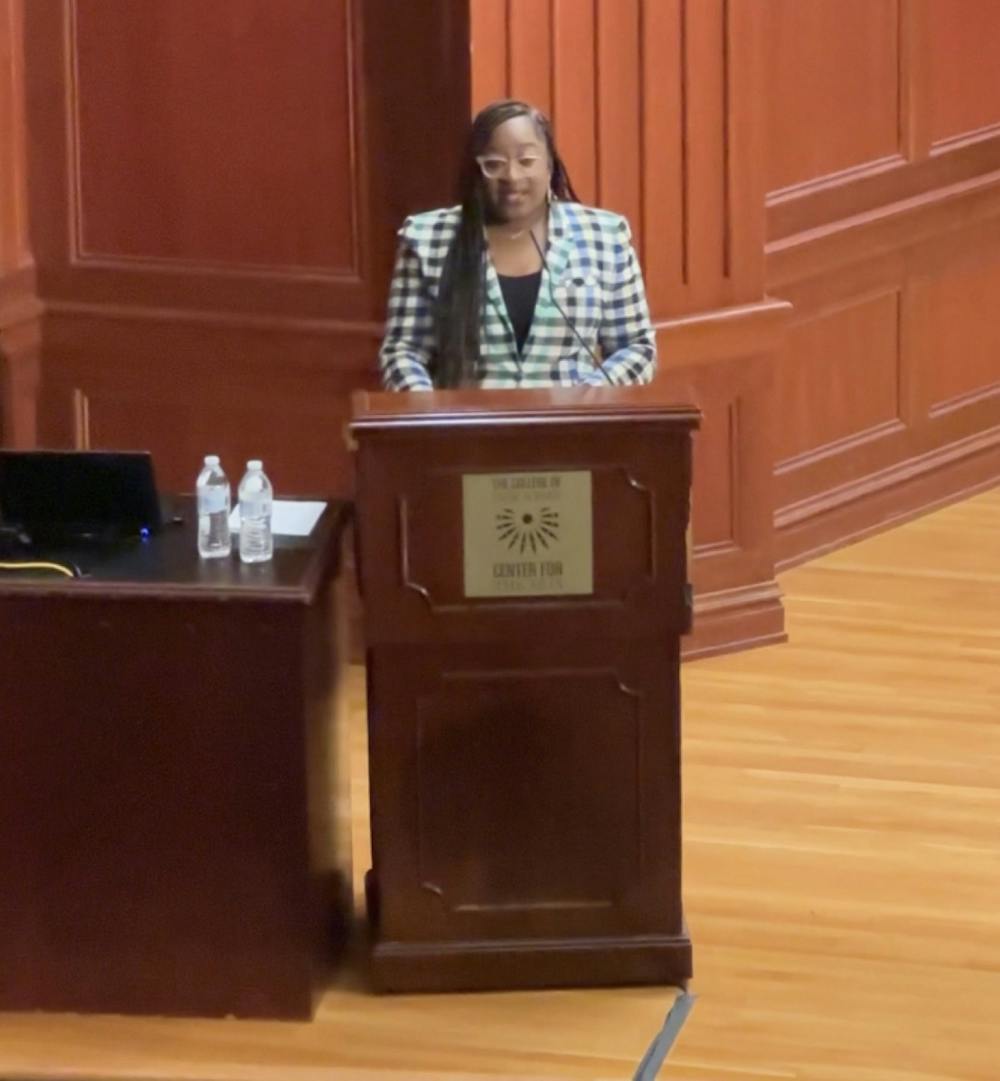By Natalia Tomczak and Adamarie Tait
Community Outreach Coordinator and Correspondent
Historian and writer Keisha N. Blain led a talk at the College on “Black Women & the Struggle for Human Rights in US History.” This presentation was given as the 2025 Alan Dawley Memorial Lecture on April 3, where Blain noted the nationwide fear that conversations like hers would be shut down.
“One of the reasons why I gave the talk, quite frankly, is I don't know if I'll be able to give the talk in two weeks, or three weeks,” said Blain in a post-lecture interview.
Blain is currently a professor at Brown University and was a former professor at the College from 2012 to 2014. She taught African American History 1865-present, as well as African American Women’s History.
Blain’s lecture spoke to the tradition of human rights advocacy led by Black women from the United States, which has had a global impact.
She began the lecture by discussing Ayo Tometi, an activist and co-founder of the Black Lives Matter movement. Blain emphasized how Tometi’s 2016 United Nations address shaped the continual fight for human rights worldwide.
Tometi addressed the most powerful body for human rights, just as many Black activists have historically. She emphasized the impact of global capitalism, white supremacy and the suppression of democracy as the root causes of inequality. She believes that the cause of inequality in one nation is shaped by a history of slavery and the impact of globalism, as marginalized groups are exploited across the globe.
“These women were human rights couriers,” Blain said to the crowd.
Fannie Lou Hamer was the focal point of the lecture. Hamer was born into a family of 20 in the early 1900s and worked as a sharecropper in Mississippi. Her family had a salary of only $3,000 a year, living under the poverty line. Her speech at the 1964 Democratic National Convention to advocate for voting rights is what Hamer is most known for, although her work extends abroad.
Blain concluded her lecture by discussing Hamer’s most famous work, Freedom Farms, developed in 1967 in the Mississippi Delta. Freedom Farms helped provide food, shelter and childcare to over 1,600 families in need. Hamer famously states that “hunger has no color line” and she “will walk a mile for anyone who is hungry, Black or white”
“Every aspect of history is connected, and it’s our responsibility to recognize the bias in the narrative and to work to bring the untold stories to light,” said freshman history secondary special education major and audience member Sidonie Lyons. “Dr. Blain’s emphasis on the intersectionality of social issues left me with a new perspective on all social movements throughout our history.”
After the lecture, a reception was held where students got to speak with Blain further. Jackie Anderson, president of the College's Women in Learning and Leadership program, asked a pertinent question: “How do you think that we can foster Hamer’s transformative vision in such a regressive political sphere?” Blain’s response was, “The key is community.”
Blain also spoke to current pressing issues, such as book banning and research funding cuts. Brown is one of the universities that received warnings that research grants may be suspended, and Blain notes that “it has been a tense time on campus” as a result.
“I recognize the power of this history — but I also realize that every time I talk about this history, it could be the last,” said Blain. “I also recognize that I have a book coming out, and I'm excited about the book, but I'm also bracing myself for the fact that the book could be banned.”
Blain is already familiar with the feeling that students don't have access to her books. Her books “Four Hundred Souls” and “Until I Am Free” have both been banned in multiple states.
Blain also spoke about the importance of saving important documents and conducting oral histories. She was able to write her first book, “Set The World on Fire,” due to the fact that someone had kept copies of documents from the 1930s, 40s and 50s in their basement — which gave her a window into Black nationalist womens’ ideas. These were sources from newspapers that are no longer in circulation, nor are they on microfilm. She prompts people to “think about preservation” and “think about collections.”
“What story do you want to leave behind about yourself, your family, your friends?” asked Blain. “This might be a good time to start thinking about what you save and how you save it.”







